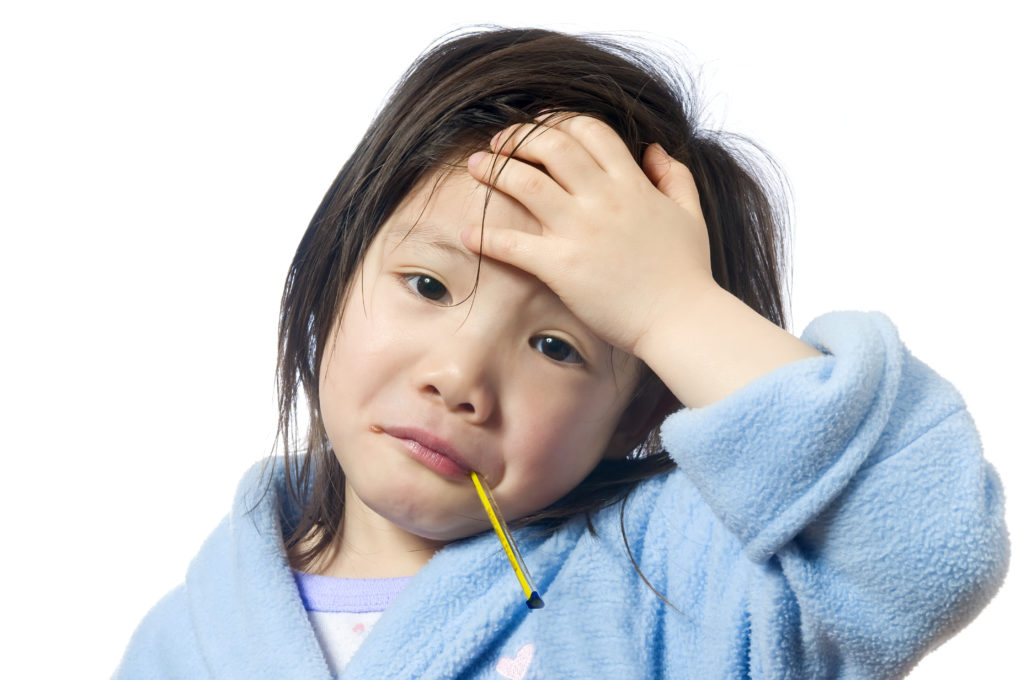
If you are a parent, you probably know the difficulties of dealing with a sick child. While many of these illnesses are unpleasant, luckily they are not usually serious. However, you should know the basics of the most common illnesses your child might get.
Common Childhood Illnesses
1. Common Cold
It’s not surprising that the common cold is one of the most common childhood illnesses. Colds are caused by viruses that spread easily in environments where people have close contact with one another. There is no cure for the cold, but it can be treated with over-the-counter medications like acetaminophen or ibuprofen to manage symptoms like fever, muscle aches, or headaches.
2. Ear Infections
Ear infections are some of the most common childhood illnesses. According to the American Academy of Pediatrics (AAP), children are more prone to ear infections than adults. Ear infections can be caused by bacterial or viral infections. Symptoms include ear pain, fever, irritability, difficulty sleeping, and tugging at an ear.
3. Influenza
More commonly known as the flu, influenza is a type of virus that spreads easily when infected people cough or sneeze. This common childhood illness has symptoms that include fever, sore throat, fatigue, body aches, and chills. Most cases can be treated at home by managing symptoms with medication, fluids, and rest.
You can reduce the risk of you and your children getting the flu by making sure everyone gets a flu vaccine each year. Getting the flu shot doesn’t guarantee you won’t get sick, but it can lower your risk for the most common strains. And it may reduce the severity and duration of flu symptoms if you do get sick.
4. Bronchitis
Bronchitis occurs when the airways in the lungs swell and produce mucus in the lungs. This causes coughing, soreness in the chest, fatigue, headaches, body aches, and sore throat. According to the Centers for Disease Control and Prevention (CDC), most cases of bronchitis are caused by a virus that often occurs after an upper respiratory infection.
5. RSV
Respiratory syncytial virus (RSV) is a common childhood illness that affects the respiratory system. In most children and adults, it causes mild cold-like symptoms including fever, coughing, runny nose, and sneezing. However, in young infants and older adults, it can be more serious. It can cause inflammation in the airways and result in pneumonia.
6. Hand, Foot, and Mouth Disease
Hand, foot, and mouth disease (HMFD) is very contagious but not usually very serious. According to the CDC, it is most common in infants and children younger than five years old. However, older kids and adults can get it. Symptoms include skin rash, fever, mouth sores, and flu-like symptoms.
7. Conjunctivitis
Conjunctivitis is known by the more common (and descriptive) name “pink eye.” The telltale signs of pink eye include redness, discharge, itchiness, and swelling in one or both eyes. There are multiple causes, but the contagious type of conjunctivitis is caused by a bacteria or virus that gets into the eye. A pediatrician may treat the pink eye with antibiotic ointment or eye drops.
8. Gastroenteritis
Gastroenteritis is also known as the stomach flu, but it is not the flu at all. But like the flu, it is caused by a virus that can spread quickly. Symptoms include nausea, vomiting, and diarrhea. Usually, the symptoms pass within a couple of days and treatment includes rest and giving fluids to avoid dehydration due to vomiting and diarrhea.
9. Sinusitis
Sinusitis is the technical term for a sinus infection. It is caused by a build-up of fluid in the sinuses, which allows germs (bacteria and viruses) to grow. Most cases of sinusitis are caused by viruses. Symptoms include runny nose, stuffy nose, headache, pressure or pain in the face, post-nasal drip (mucus dripping into the throat), sore throat, cough, and bad breath.
10. Strep Throat
Strep throat is caused by a bacteria called streptococcus pyogenes that gets into the nose and throat. It causes sore throat, fever, swollen tonsils, and stomach pain. If your child has these symptoms, they should see the pediatrician so they can get a strep test and be treated with antibiotics.
When To Call the Pediatrician
Many common childhood illnesses run their course on their own or clear up with rest and medication. However, some symptoms are indicators that you should contact your child’s doctor. Seek medical advice if your child:
- Has a suppressed immune system, diabetes, asthma, or other chronic illness
- Shows signs of dehydration
- Has a high fever
- Has difficulty breathing
Contact Wake Forest Pediatrics
The board-certified pediatricians and staff at Wake Forest Pediatrics are dedicated to providing quality care to patients in Wake Forest and Knightdale. Our comprehensive approach focuses on teamwork and open communication with patients and parents. If you have questions about common childhood illnesses, call our Wake Forest office at 919-556-4779 or our Knightdale office at 919-266-5059 to make an appointment.




